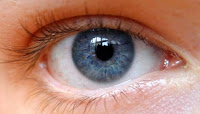Learning stress management techniques can help people who suffer from a depressing kind of high blood pressure is common among the elderly to eliminate their need for anti-hypertension drugs, according to a new study.
People who experience the condition, known as isolated systolic hypertension, who participated in relaxation training had a better chance to be able to eliminate at least one of their high blood pressure medication compared with those who did not join the training relax. Thus the findings of Dr. Jeffery A. Dusek of Massachusetts General Hospital in Boston and colleagues.
If their findings are confirmed in patients with other types of high blood pressure. Dusek and colleagues conclude, the benefits in the prevention of stroke, heart attack, heart failure and other ill effects of high blood pressure.
As people age, their systolic pressure is high (the highest number in the blood pressure reading) tends to rise, semetara their diastolic blood pressure, or lowest number, often drops, Dusek and his team explain in the Journal of Alternative and Complementary Medicine.
As many as 75% of elderly people suffer from high blood pressure have isolated systolic hypertension, which is a therapeutic challenge to treat effectively, given the risk is too low diastolic blood pressure, as well as the fact that many elderly people take multiple medications, they said. To ascertain whether the study the stress management techniques can help people with systolic hypertension without drugs, the researchers took 122 men and women who suffer from high blood pressure and aged 55 years and older during the eight weeks of relaxation response training or a control group.
Everything is taking at least two antihypertensive drugs at the study's outset. People who are in the relaxation response group participated in weekly sessions that include 15 minutes of instruction on how to generate a reaction (such as mindfulness meditation and deep breathing), as well as 20 minutes of relaxation reaction activity.
They were instructed to listen to the recording of the relaxation response for 20 minutes every day. Patients who were in the control group listened to a series of recorded instructions regarding treatment techniques for 20 minutes.
At the end of eight pecans, 44 people in the relaxation response group and 36 participants of the monitoring group had lowered their blood pressure to the target level and qualify for further training which includes eight pecan disappearance monitored antihypertensive medications. A total of 32% of the study participants in the relaxation group can maintain their blood pressure at the recommended level while eliminating one or more anti-hypertensive medications they are, are those who were in a monitoring amount to 14%.
After pre researchers monitor the various traits of people in each group, they found that the relaxation is didalamkelompok increase the chances of a person to be able to eliminate at least one medication more than four-fold.




























